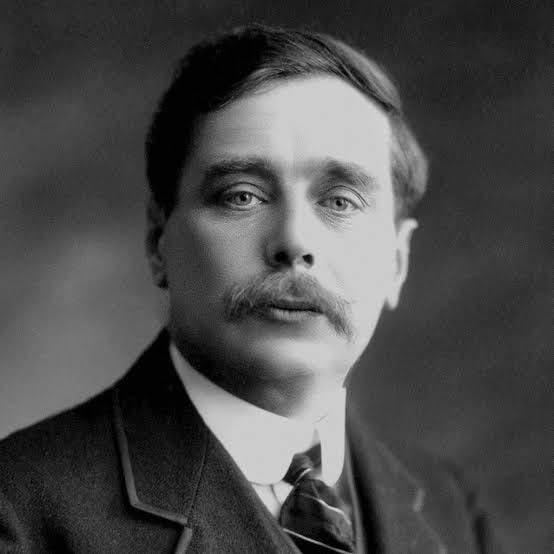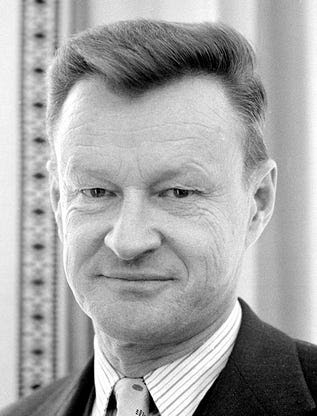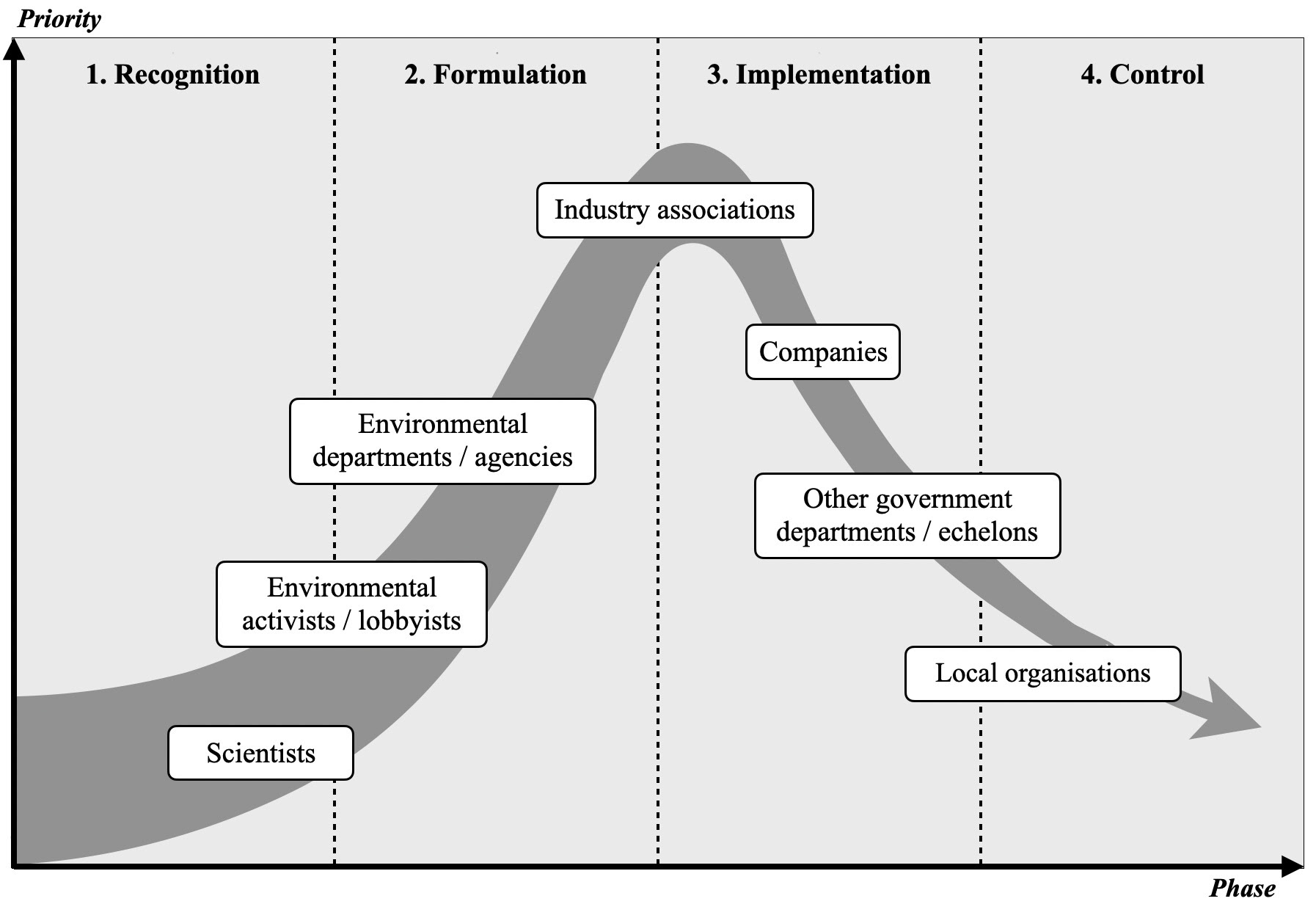Silent Weapons For Quiet Wars | TW-SW7905.1

Tap News | Tapestry
Jacob Nordangård
An elitist programming manual for total financial enslavement that corresponds with the ongoing efforts to reform the global governance system
In 1986 a strange and appalling document was uncovered in a recently purchased surplus IBM copier by an employee from the Boeing Aircraft Company. The name on the report was Silent Weapons for Quiet Wars and it contained a technical manual on how to manipulate the masses and create a system of total control with the fittest as rulers and the lower classes as slaves. It was initially published in 1979 to celebrate 25th anniversary of the “Quiet War”, and was written for people invited to the project because of their “ability to look at human society with cold objectivity”.¹
I first read this document in the mid 00s and was shocked about the cold machine-like language and sociopathic views on mankind. Could this be an authentic document?
I have since thoroughly studied the methods of the global decision-makers in my doctoral thesis Ordo Ab Chao (2012), and my three latest books Rockefeller – Controlling the game (2019), The Global Coup d’État (2020) and The Digital World Brain (2022).
Upon reading Silent Weapons for Quiet Wars again, it is now obvious how well it corresponds with the ongoing efforts to reform the global governance system and effectively construct a digital world brain.

The ideas go back to the science fiction writer and Fabian Society member H.G. Wells’ vision of a World Brain, as well as the technocratic economic management system that was developed by M. King Hubbert and Howard Scott at Colombia University in the early 1930s (Technocracy Study Course). The technology available at that time was, however, insufficient for effectively operating such a system.
But military research during World War II would change everything. In a short time span the electronic computer, linear programming, and the transistor were developed.
In the late 1940s, it was “suspected” by those in positions of power that future advances in computer technology would make it possible to automate society and control the world by the push of a button.² This became a priority for the big philanthropies like Rockefeller Foundation and Ford Foundation.
Closely connected to this technological development was the new science of Cybernetics, which was made possible by grants from The Rockefeller Foundation. In 1948 MIT Mathematician Norbert Wiener published his groundbreaking book Cybernetics: Or Control and Communication in the Animal and the Machine. This would be a guide for future developments.
Another component of these efforts was, according to Silent Weapons for Quiet Wars, the Harvard Economic Research Project that ran between 1948 to 1952, with funding from Rockefeller Foundation.³ The project laid the groundwork for the discipline of Economic (Social) Engineering and was based on Soviet-American Wassily Leontief’s input-output analysis. A technique used in economics for tracing resources and products within an economy.⁴
It was all about controlling the resources of the world.
All science is merely a means to an end. The means is knowledge. The end is control. Beyond this remains one issue: Who will be the beneficiary? (Silent Weapons for Quiet Wars, p. 7)
According to Silent Weapons for Quiet Wars, it was decided by the international elite to use economic engineering as a silent weapon against the masses at a meeting in 1954.

Prince Bernhard (1911-2004) and David Rockefeller (1915-2017)
This summit has been attributed by other authors to the first Bilderberg Meeting with attendees like Bilderberg chairman Prince Bernhard, Secretary General Józef Retinger, and with David Rockefeller as rapporteur on “economic problems”. This meeting also discussed the necessity of creating a European Union. The conference report does not, however, mention the use of a silent weapon to control the masses.⁵
Their view of the common man was based on an harsh elitist mindset.
…in view of the law of natural selection it was agreed that a nation or world of people who will not use their intelligence are no better than animals who do not have intelligence. Such people are beasts of burden and steaks on the table by choice and consent. (Silent Weapons for Quiet Wars, p. 7)
The objective was to shift the wealth of the “undisciplined and irresponsible” many to the “self-disciplined, responsible and worthy” few, and create a totally predictable and manipulatable economy.
This form of slavery is essential to maintain some measure of social order, peace, and tranquility for the ruling upper class. (Silent Weapons for Quiet Wars, p. 8)
In order to attain a world monopoly on energy, raw materials, goods and services, it was crucial to have first knowledge of all factors influencing the economy. This would give first strike capabilities and the ability to engineer the global economy in the desired direction.
Once the agenda was agreed upon, the aspiring world controllers made it a priority and resources were allocated to laying the foundation of the future digital world brain.
In 1956 the new discipline of Artificial Intelligence was established during the Dartmouth Conference, again with funding from Rockefeller Foundation.⁶ It was also the year that the Shockley Semiconductor Laboratory opened its operations in what would become Silicon Valley. This was followed by the computer revolution during the 1970s and 80s. Companies like Intel and Apple gained initial support by the Rockefeller brothers venture capital firm Venrock.⁷
The people would be lured into the new system by the application of a set of manipulative techniques. To make the populace more prone to the changes and give up their sovereignty they had to be demoralized through diversion.⁸ This would be achieved by:
- disengaging their minds; sabotaging their mental activities; providing a low-quality program of public education.
- engaging their emotions, increasing their self-indulgence and their indulgence in emotional and physical activities.
- rewriting history and law and subjecting the public to the deviant creation, thus being able to shift their thinking from personal needs to highly fabricated outside priorities.

To succeed, the family unit had to be “carefully disintegrated”:
…the family unit must be carefully disintegrated, and state-controlled public education and stateoperated child-care centers must be become more common and legally enforced so as to begin the detachment of the child from the mother and father at an earlier age. (Silent Weapons for Quiet Wars, p. 56)
This has been especially successful here in my “progressive” homeland Sweden where a tax reform in 1971 made it necessary for both parents to work (and leave their children to kindergarten). Today, parents are encouraged to leave their children to daycare from as early as one year of age, and there has even been suggestions to make this mandatory.
The silent weapons would gradually be applied, resulting in adaption to and tolerance of the new conditions, before the psychological and economic pressure in the end would become too great to endure. The ordinary man would then surrender and give his consent to the complete takeover of the elites.
Staged shock treatments would be used to force humanity into the cage.
Then the response of the household to future shocks can be predicted and manipulated, and society becomes a well-regulated animal with its reins under the control of a sophisticated computer-regulated social energy bookkeeping system. (Silent Weapons for Quiet Wars, p. 14)
The future system would be based on social credits, with the aim of weeding out the unfit from the social body.
This meant that every “individual element of the structure” would come under computer control through a knowledge of personal preferences. The individual would be identified with the “use of a credit card” and later with a permanent “tattooed” body number.⁹
This is the background to the introduction of today’s digital identity system (“a legal identity for all”) and the Rockefeller and Microsoft-funded ID2020 Alliance. This is also what film producer Aaron Russo warned about in 2007, based on insider information from his then-friend Nick Rockefeller:
What was needed was data. As H.G. Wells wrote in his a 1905 book A Modern Utopia:
These index cards might conceivable be transparent and so contrived to give a photographic copy promptly whenever it was needed, and they could have an attachment into which would slip a ticket bearing the name of the locality in which the individual was last reported.
The new control system required personal files with intimate information of everyone. In this way habits, behaviour and preferences could be studied in order to manipulate society as a whole.
A silent weapon system operates upon data obtained from a docile public by legal (but not always lawful) force. (Silent Weapons for Quiet Wars, p. 48)
This would be obtained through hospital records, psychiatric records, payment records and credit cards etc. Since the Internet revolution and the creation of Google and Facebook, the possibilities for data collection has of course become nearly limitless.
This is how ruthless sociopaths operate. They seek knowledge about the weaknesses and strengths of their victims in order to influence and ultimately control them.
David Rockefeller made you feel important. He would listen to your stories, and what is more important is that he would remember your stories. (John M. Foregash, Yale University)
The effects on the population of every global shock were to be analysed, followed by the introduction of new building blocks of the new global order (with newly acquired support from the general public).
It is effectively the well known formula “problem–reaction–solution”.
The objective was to “set the public economy into a predictable state of motion or change” that would “convince the public that certain ‘expert’ people should take control of the money system and reestablish security for all.”¹⁰
The citizens, no longer in control of their financial affairs, would then become “totally enslaved”.

As described by elitist insider Zbigniew Brzezinski in 1968:
Power will gravitate into those who control information and can correlate it most rapidly. Our existing postcrisis management institutions will probably be supplemented by precrisis management institutions, the task of which will be to identify in advance likely social crisis and to develop programs to cope with them. This could encourage tendencies during the next several decades toward a technocratic dictatorship, leaving less and less room for political procedures as we now know them.¹¹
Brzezinski co-founded the Trilateral Commission with David Rockefeller in 1973. TriCom was to become a central player in achieving this goal.
The first phase started with introduction of population problems based on Neo-Malthusianism in the 60s with the help of Paul Ehrlich’s The Population Bomb and The Club of Rome’s Limits to Growth, leading up to the UN Conference on Environment and Development in Stockholm in 1972 and followed by the 1973 and 1979 Oil Shocks with economic turmoil as a consequence.
One of the results was the establishment of the intergovernmental policy forum G7 to discuss and manage economic problems.
This was followed by the environmental movements protests against nuclear power and warnings of a disaster. The movie The China Syndrome about such an incident was premiered 16 March 1979 – followed by the Three Mile Island nuclear accident twelve days later. Timing is everything!
The environmental problems that were highlighted set the stage for the Brundtland Commission and the Sustainable Development doctrine. The people and the planet were in need of the guiding hands of the elites in order to avoid the problems these elites themselves had created. A truly psychopathic methodology, often used by the mafia.

Their framework for policy change, labeled “Policy Life Cycle” and developed by Dutch Professor Pieter Winsemius, was evaluated in the 1991 Trilateral Commission report Beyond Interdependence: The Meshing the Worlds Economy and the Worlds Ecology.
This report, with a preface by David Rockefeller, presented an ambitious action plan to change the global system in the preferred direction. The goal was to set up an Earth Council to manage global affairs.
The next stage was introduced after the Earth Summit in Rio de Janeiro in 1992 with its adaption of Agenda 21 (“Agenda for the 21st Century”), and the approval of the international declaration Earth Charter in March 2000. These constitute the blueprint and commandments of the elites’ population control agenda.
The Earth Charter Commission had been convened by Prince Bernhard’s daughter Queen Beatrix of the Netherlands, headed by Club of Rome members Maurice Strong and Mikhail Gorbachev, with Davids nephew Steven Rockefeller as coordinator.
The shock strategy was elaborated by the Rockefeller and UN-funded Global Scenario Group in the 1990s resulting in the scenario report The Great Transition: Promises and lure of times ahead (2002). This report described possible paths towards a “sustainable utopia” with a World Regulatory Authority and listed several crises acting as transformative agents leading up to a general systemic crisis that would trigger the “global reform era”.¹²

The stage was set to give the new century a running start. Crisis upon crisis would hit the population and create opportunities for the elites.
The general ‘rule is that there is profit in confusion; the more confusion, the more ‘profit. Therefore the best approach is to create problems and then offer the solutions. (Silent Weapons for Quiet Wars, p. 47)
- 2001 September 11 attacks
- 2004 Madrid Train Bombings
- 2005 London Bombings
- 2005 Hurricane Katrina/Floods in Europe
- 2008 Energy Crisis
- 2008 Food Price Crisis
- 2008 Global Financial Crisis
- 2009-10 Swine Flu Pandemic
- 2015 The Refugee Crisis
- 2017 The Ocean Plastic Crisis
- 2020-22 COVID-19 Pandemic
The global financial crisis established G20 as the premier forum for economic cooperation and crisis management with G7 and the newly founded BRICS as supporting bodies.
World Economic Forum (WEF) stepped up as the leading agenda setting organisation for public-private partnerships. Their Young Global Leaders “penetrated the governments”.
In 2015 the United Nations 2030 Agenda for Sustainable Development and the Paris Agreement on Climate Change was adapted followed by WEFs declaration of the Fourth Industrial Revolution in 2016. The latter was a technocratic and transhumanist plan for systems transformation.
In June 2019, the World Economic Forum and United Nations signed a formal partnership to further the agenda. This became a part of the G20 Society 5.0 framework, which was presented at the G20 annual summit in July 2019.
The COVID-19 pandemic in March 2020 triggered “The Great Reset”, with the mission to “build back better” and make the global institutions fit for the 21st century.

This meant expanding the power of the World Health Organisation through a revision of the International Health Regulations (see this analysis by Meryl Nass), and the United Nations system through Our Common Agenda (2021).
The latter includes:
- Total digitalisation through a Global Digital Compact.
- The data about everyones behaviour will be analysed through a Futures Lab Network.
- People’s actions will be balanced to not exceed the planetary boundaries and infringe on the rights of future generations.
- Everyone has to be held accountable for their actions.
- Intolerable views (mis- and disinformation) that threatens the UN agenda will be dealt with
- Illegal activities will be mapped through space surveillance technology
- An Emergency Platform will be set up in case of a global shock to manage the problem
- G20 will together with UN and the global financial institutions evolve into an “Apex Body” for the world economy .

This will be agreed upon and signed at the Summit of the Future in September 2024.
This constitutes the “geopolitical framework” that is set to “absorb the inevitable shocks and strains of social-political change” with an upgraded United Nations at its helm, that Zbigniew Brzezinski foresaw in his 1997 book The Grand Chessboard.¹³ This constitutes the future world system that was envisioned in Silent Weapons for Quiet Wars.
The author of Silent Weapons did however express some concern:
It is only a matter of time before the new breed of private programmer/economists will catch on to the far-reaching implications of the work begun at Harvard in 1948. The speed with which they can communicate their warning to the public will largely depend upon how effective we have been at controlling the media, subverting education, and keeping the public distracted with matters of no real importance. (Silent Weapons for Quiet Wars, p. 15)
People of knowledge would eventually catch up and understand. The agenda was also in need of the consent of the people to be successfully implemented.
This is where we are at the moment. There are cracks in their “perfect order”. It is now crucial that we join forces and expose these dark overlords before the cage closes on us forever. It is time to bring in the light and put an end to the rule of these vampires.
Sources and Referances:
Silent Weapons for Quiet Wars: An Introductory Programming Manual, https://www.pdf-archive.com/2017/07/21/silent/silent.pdf
2
Silent Weapons for Quiet Wars, p. 7
3
Rockefeller Foundation (1948), Annual Report 1948, https://www.rockefellerfoundation.org/wp-content/uploads/Annual-Report-1948-1.pdf
4
Input Output Analysis, First, IO analysis assumes that each sector of the economy consumes inputs in fixed proportions (demand for intermediate inputs is a linear function of output). From: Encyclopedia of Social Measurement, 2005, www.sciencedirect.com/topics/agricultural-and-biological-sciences/input-output-analysis#:~:text=Input%E2%80%93output%20(IO)%20analysis,base%20and%20input%E2%80%93output%20models.
5
Bilderberg Conference May 29th-31st, 1954, https://info.publicintelligence.net/bilderberg/BilderbergConferenceReport1954.pdf
6
Barbara Shubinski (2022), A Roomful of Brains”: Early Advances in Computer Science and Artificial Intelligence, Rockefeller Archives Center, https://resource.rockarch.org/story/a-roomful-of-brains-early-advances-in-computer-science-and-artificial-intelligence/
7
Venrock, https://www.venrock.com/
8
Silent Weapons for Quiet Wars, p. 47
9
Ibid, p. 14
10
Ibid. p. 34
11
Brzezinski, Z. (1968), America in the Technetronic Era. In: Kateb, G. (red.), Utopia: The Potential and Prospect for the Human Condition, Oxford: Routledge, p. 137
12
Raskin Paul (2002), Great Transition: The Promise and Lure of the Times Ahead, Stockholm Environment Institute, https://www.sei.org/wp-content/uploads/2019/04/great-transition-2002.pdf
13
Brzezinski, Zbigniew (1997), The Grand Chessboard: American Primacy and Its Geostrategic Imperatives, New York: Basic Books, p. 215
Original Article: https://tapnewswire.com/2023/11/silent-weapons-for-quiet-wars/
Related:



Comments ()